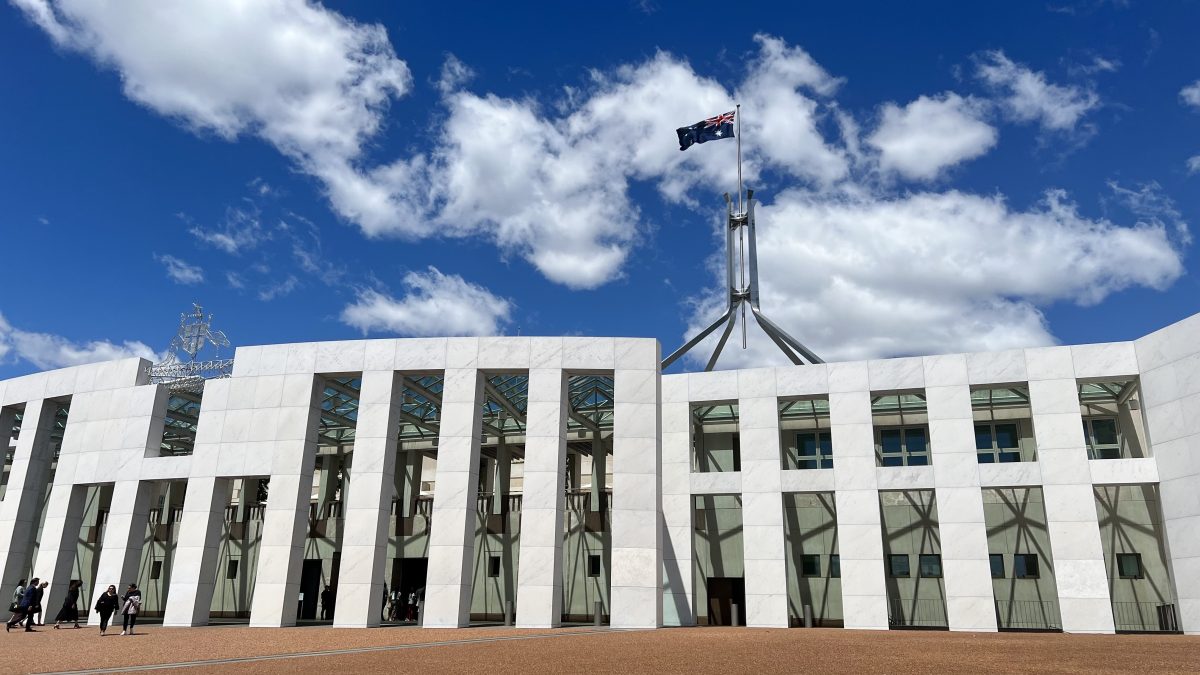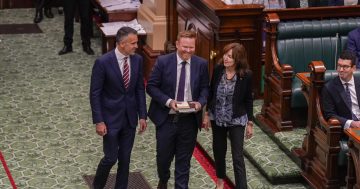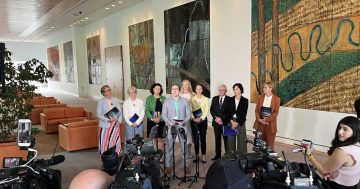
In the last federal election year, the Human Rights Law Centre said a record $119 million was contributed to political parties through donations with no disclosed source. Photo: James Coleman.
The Joint Standing Committee on Electoral Matters (JSCEM) has submitted its final recommendations for improving the integrity of Australia’s elections. While the reforms seek to reduce the influence of big money, some believe the report doesn’t go far enough in levelling the playing field for participation in politics.
Following an inquiry into the 2022 election, 21 recommendations were put to Parliament on top of the last 15 pitched in their June interim report. The process saw over 1500 submissions and 11 public hearings, along with a variety of suggestions from politicians seeking to limit corruption and build public trust.
Committee Chair and Greens MP Kate Thwaites said that despite Australia’s strong electoral system, they heard clear evidence of the need for reform.
Key recommendations of the inquiry include:
- Lowering the donation disclosure threshold to $1,000 and introducing ‘real-time’ disclosure
- Introducing donation and electoral spending caps while exempting registered charities
- Introducing truth in political advertising laws
- Improving Territory representation from two to four Senators
- An inquiry into expanding the size of the House of Representatives to reduce malapportionment
- Making voting more accessible, especially for Aboriginal and Torres Strait Islander peoples, those with disabilities, older Australians and voters overseas
- Implementing more civics education into school curriculums
- Amending the process for distribution of postal vote applications so they’re sent directly to the Australian Electoral Commission (AEC) instead of political parties first.
In a dissenting report from Coalition MPs, they urged hastening the redistribution process, boosting transparency obligations on large social media platforms and bolstering the AEC’s ability to deliver the civics program.
Independent ACT Senator David Pocock welcomed the recommendations, especially increasing Senate representation in the Territories so that it is tied proportionally to the states. However, he thought more could be done regarding truth in political advertising and donations.
“We are well and truly in the era of mis- and disinformation and it is urgent that we update our laws to ensure truth in political advertising to protect our democracy,” Senator Pocock said.
“When Australians go to the polls, they need to do so fully informed and with the facts – not a fairytale spun by one side of politics or another.”
Director of the Australia Institute’s Democracy & Accountability Program Bill Browne said the government should adopt and legislate these reforms well in advance of the next election.
In June, the think tank published a report on the Advantages of Incumbency, which warned that donation caps, similar to limits in NSW, could make it harder for new entrants at the next federal election.
During the current election cycle, government MPs and Senators will be eligible for collective entitlements worth at least $283 million and for the opposition $234 million.
The millions received can be used for re-election campaigns, which the Institute said creates barriers to entry for challengers and helps explain why 90 per cent of incumbents get re-elected.
“While incumbents have a publicly funded head-start, challengers rely on donations to fund their election campaigns,” said Mr Browne at the time.
“Everyone should be able to afford a ticket to enter an election. Any election donation reform should take into account the significant head-start incumbents enjoy over their challengers.”










